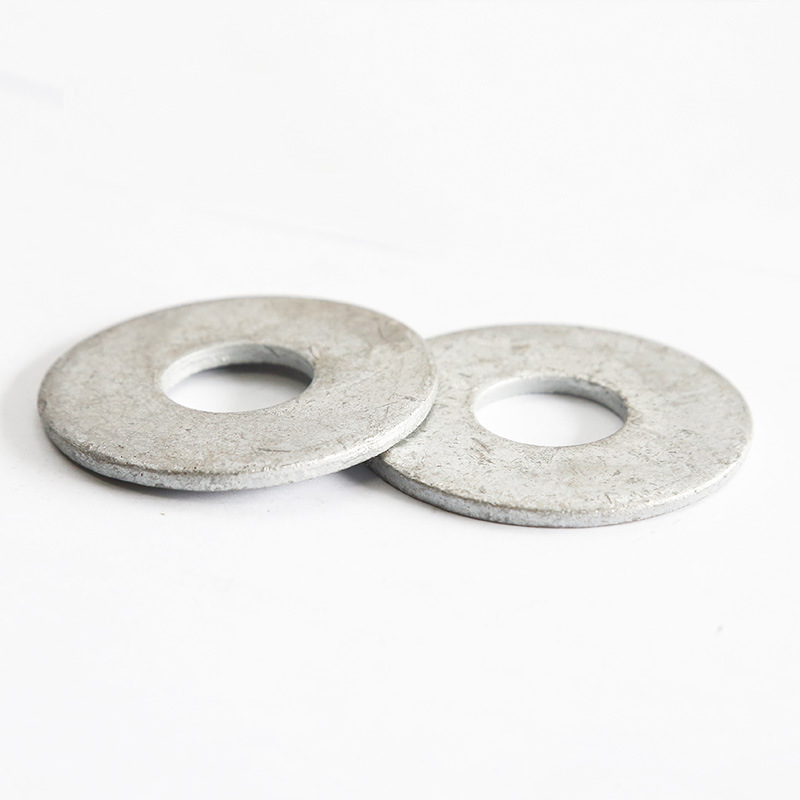

Innovative Design Concepts for Spherical Flange Nuts in Modern Engineering Applications and Manufacturing
Ago . 15, 2024 05:37 Back to list
Innovative Design Concepts for Spherical Flange Nuts in Modern Engineering Applications and Manufacturing
Understanding Spherical Flange Nuts A Comprehensive Overview
Spherical flange nuts are specialized fastening components designed to provide exceptional performance and reliability in a variety of applications. Characterized by their unique spherical shape and integrated flange, these nuts are engineered to accommodate various stresses and loads, making them a popular choice in industries such as automotive, construction, and machinery.
Design and Features
The most distinctive feature of spherical flange nuts is their spherical bearing surface, which allows for angular misalignment. Traditional nuts can only provide secure fastening in applications where the components are perfectly aligned. However, in real-world conditions, components are often subjected to vibrations, misalignments, and other stresses. The spherical design enables the nut to maintain a firm grip even when the connected parts are not perfectly aligned.
In addition to the spherical design, these nuts also feature an attached flange, which serves multiple purposes. The flange increases the contact area with the base material, which prevents wear and tear over time. It also helps distribute the load more evenly across a larger surface area, reducing the risk of damage to sensitive equipment. This attribute is particularly important in applications where safety is paramount, such as in the aerospace and automotive industries.
Applications
Spherical flange nuts find an extensive range of applications due to their versatility and durability. In construction, they are often used in steel structures and heavy machinery, where there is a need for robust fastening solutions that can withstand heavy loads and dynamic forces. In automotive engineering, these nuts are used in suspension systems, where alignment may vary due to operational stresses, ensuring a secure connection that contributes to vehicle stability and safety.
spherical flange nut

These nuts are also prevalent in the field of robotics, where precision is crucial. Their ability to accommodate slight misalignments allows them to maintain secure connections in dynamic environments, where structural relationships can change quickly and unexpectedly. Moreover, spherical flange nuts are engineered to resist corrosion and wear, making them suitable for environments exposed to harsh chemicals or weather conditions.
Advantages
One of the primary advantages of spherical flange nuts is their ability to simplify assembly processes. Because they can compensate for misalignment, fewer adjustments are often needed during installation, saving time and labor costs. Additionally, their secure fastening capabilities can reduce the need for frequent maintenance checks and replacements, further enhancing their cost-effectiveness over time.
Moreover, the spherical design minimizes the risk of loosening due to vibrations. In many applications, fasteners can become loose over time, leading to potential failures. The shape and design of flange nuts naturally resist this loosening phenomenon, providing added peace of mind in critical applications.
Conclusion
In summary, spherical flange nuts are a vital component in modern engineering and construction, with their unique design offering significant advantages in terms of alignment compensation, load distribution, and ease of use. Their robustness and reliability make them indispensable in various fields, particularly where safety and performance are non-negotiable. As industries continue to evolve and push the boundaries of technology, the importance of sophisticated fastening solutions like spherical flange nuts will undoubtedly persist, underscoring the need for innovation in all aspects of engineering and design.
Latest news
-
Premium Fasteners Manufacturer | AI-Driven Solutions
NewsAug.01,2025
-
Hot Dip Galvanized Bolts - Hebei Longze | High Strength, Corrosion Resistance
NewsAug.01,2025
-
High-Strength Hot Dip Galvanized Bolts - LongZe | Corrosion Resistance, Custom Sizes
NewsAug.01,2025
-
Best Self Tapping Screws for Drywall - Fast & Secure Installation
NewsJul.31,2025
-
High-Strength Hot Dip Galvanized Bolts-Hebei Longze|Corrosion Resistance&Customization
NewsJul.31,2025
-
Hot Dip Galvanized Bolts-Hebei Longze Metal Products|Corrosion Resistance&High Strength
NewsJul.31,2025

